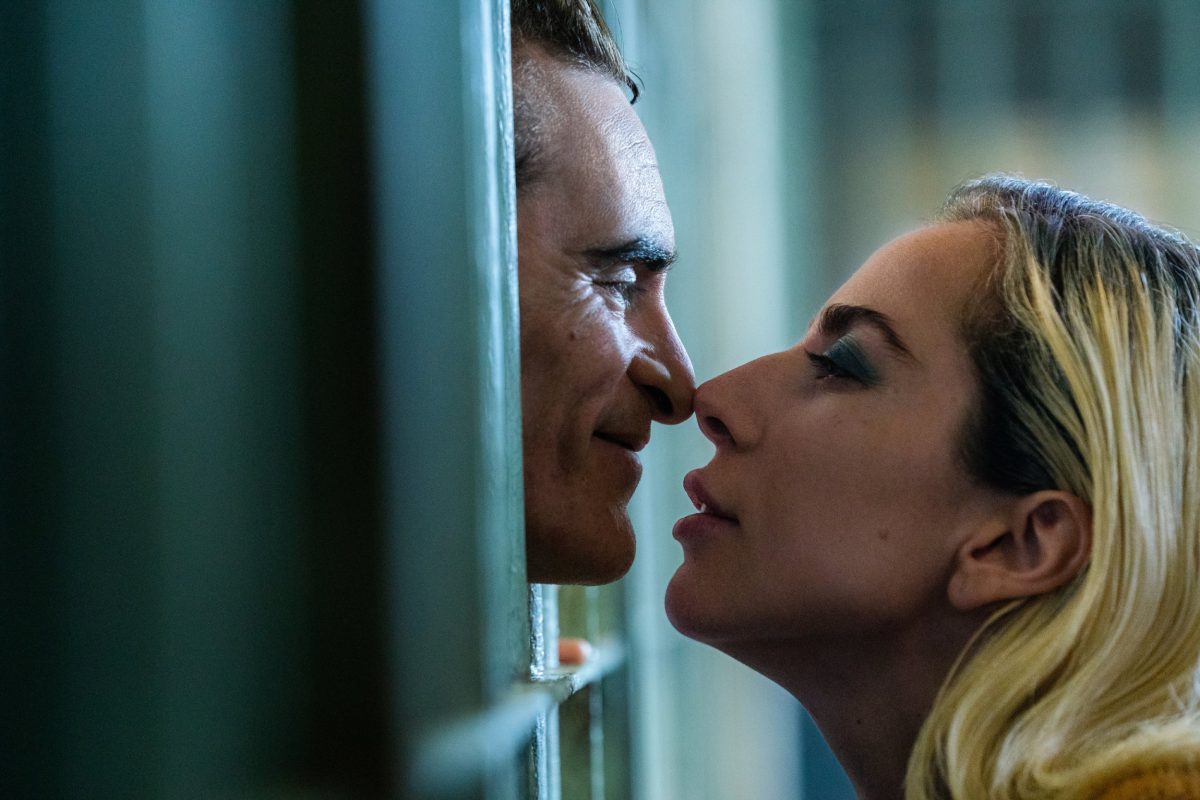What a staggeringly stupid film. Joker: Folie à Deux is a sequel that did not need to exist. It’s an unspeakably self-indulgent, two-hour-plus beast of hodge-podge musical numbers wedged between drab prison and courtroom scenes.
We pick up with our anti-hero, Arthur Fleck, who in the previous film murdered five people in a rampage, locked in Arkham, Gotham’s home for the criminally insane. A falsely jolly screw (Brendan Gleeson) is breathing down his neck and he is awaiting a highly publicised trial for his crimes, but in the meantime, a TV movie has been made about his life, and he seems to have attracted a segment of rabid fans.
One of them is fellow sociopath and pyromaniac Harley Quinn, and there’s an almost instant mutual obsession. Lady Gaga plays Quinn as a pared-down version of the mouthy villainess with whom we’re familiar. The pair meet in a prison singing class and their tendency to jump into fantasy song-and-dance numbers – typically of the great American songbook persuasion, from Sinatra to Ella Fitzgerald – feels tacked on, a cheap trick to elicit surprise rather than any earned narrative function. Even if there’s some initial charm to the odd duet, the novelty soon wears off, and by the time Fleck himself is saying, “Stop singing. Talk to me!”, you might agree with him. The musical element of the film tries to do the heavy lifting of emotion and story without any of the legwork.
Brendan Gleeson as Jackie Sullivan, centre rear, and Joaquin Phoenix as Arthur Fleck, centre, in ‘Joker: Folie a Deux’ (Photo: Niko Tavernise/DC Comics/Warner Bros Entertainment Inc)
Mainly, the film seems to be interested in proving to the world at large that the first Joker film was not the incel manifesto it was made out to be. Todd Phillips’ surprise phenomenon from 2019 was a dingy, Scorsesean retread of the Arthur Fleck origin tale about a mentally ill, friendless loser who explodes into violence – interesting in part because it tried to examine what turns men like this in to monsters.
Joker: Folie à Deux attempts to further mine this vein, but Phillips has a hopelessly simple-minded attitude toward complex topics like abuse and mental health, and his attempts to undercut any hero-worship of his incel protagonist are stymied as he films endless slow-motion sequences of Joker smoking and vamping through the courtroom.
As the maybe-split personality Fleck, Joaquin Phoenix has been encouraged to throw everything at the screen. It’s not totally uninteresting, because he’s Joaquin Phoenix, one of the finest actors of his generation. But the gnarled physical stature and rasping laugh he adopts in the first film are joined by a flurry of additional tics, oddities, and constantly changing accents. This is a cartoon madman in every sense, and even the strength of the actors around him, including Gaga – a real star – can’t save the film from floundering.
At a portentous moment of the film, the clown tells a knock-knock joke with the punchline that it’s not Joker, but simply Arthur Fleck, who’s there. Frankly, I wish he’d go away.
The follow-up to Todd Phillips’ surprise phenomenon is an unspeakably self-indulgent, two-hour-plus beast Read More

